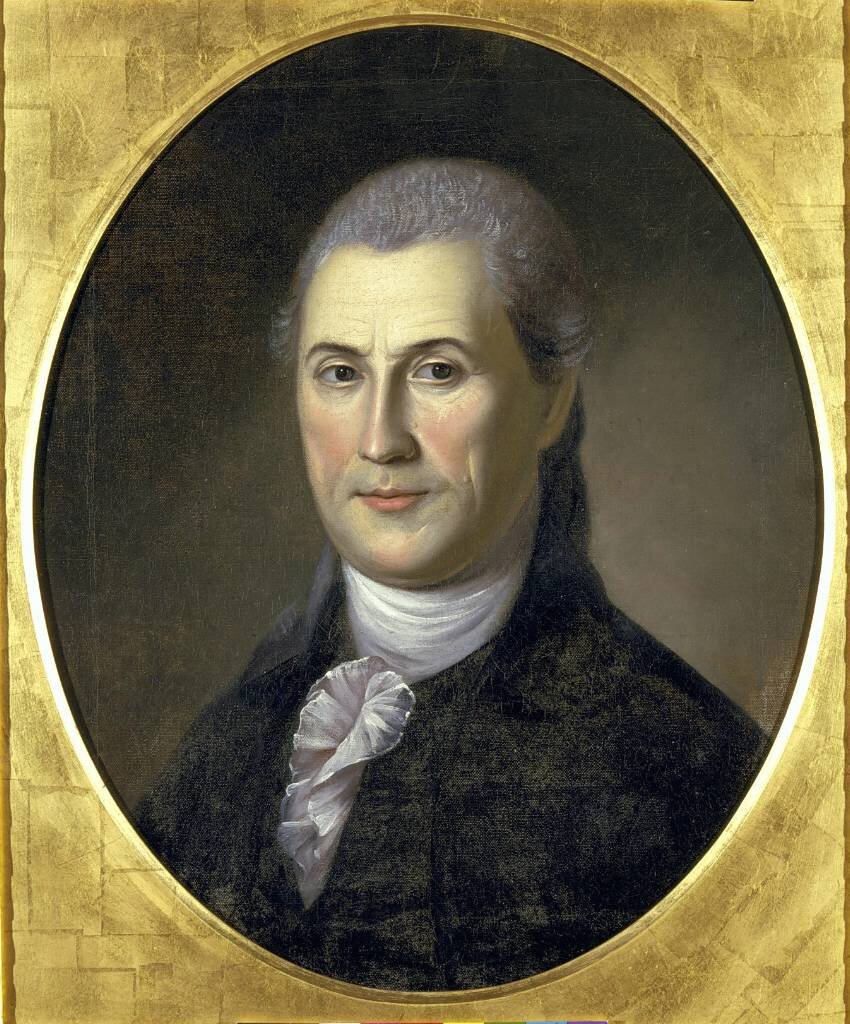
Samuel Huntington
Connecticut
On July 5, 1731, Mehetable Huntington gave birth to her fourth child and second son, Samuel Huntington. His father, Nathaniel Huntington was a farmer and a clothier in Scotland, Connecticut, which is about 35 miles east of Hartford. Young Huntington was raised in a Christian home where a knowledge of the scriptures and good character were taught. Later in life, he would guide others in their study of the Divine as a professor of religion. (I have deleted this sentence. He was not an academic professor of religion, but a confessional professor of religion.)
The interesting reality regarding Samuel Huntington is he did not receive a formal education, but educated in the common schools. When he was 16 years of age, he apprenticed with a cooper while continuing to help his father on his farm. He was an intellectually curious person who borrowed books from Rev. Ebenezer Devotion’s library. He also borrowed books from local lawyers in order to study history, Latin, and the law. At the proper time, Mr. Huntington proved himself fully knowledgeable in the field of law and was admitted to the bar at Windham in 1754 at the age of 23. He, then, moved to Norwich, Connecticut and set up his law office there.
Samuel Huntington’s public service began in 1764 in the lower house of the General Assembly. The following year, royal governor John Trumbull appointed him the king’s attorney for the colony and was elected to the position of justice of peace for New London County. He held these positions for the decade leading up to the major conflicts of the American Revolution, which began in 1775. He also earned the trust of the General Assembly who greatly valued his judicial wisdom and appointed him as judge of the Connecticut Superior Court.
In light of English encroachment in the affairs of the colonies, Samuel Huntington began stating his displeasure with the crown’s actions in 1774. Consequently, he resigned as the king’s attorney. Mr. Huntington became a member of the upper house, the Council, of the General Assembly in 1775 and was selected to represent Connecticut in the Continental Congress. He voted for independence and its declaration on July 2nd and July 4th, respectively.
Samuel Huntington continued to serve faithfully in the Congress and when John Jay, who was the president of the Congress, was named minister plenipotentiary to the court of Spain, Mr. Huntington was elected his replacement. Under his leadership, the Continental Congress addressed successfully the issues facing the young nation. Key among them was the need for the Articles of Confederation to be ratified. All of the colonies had ratified the document, but Maryland. Its delegates objected to western lands in the Ohio territory held by New York, Virginia, and Connecticut. Slowly and eventually, the states ceded the land to the national government thanks to the persuasive powers of Mr. Huntington. Maryland ratified the Articles on March 1, 1781. For his demonstration of wisdom in leading the country, Yale, Dartmouth, and Princeton bestowed the self-taught man with honorary degrees.
In 1783, Samuel Huntington came back to Connecticut and continued to serve the public in the roles of chief justice of the superior court, lieutenant governor, and governor. As governor, he saw to it roads were built and industry was established. He also supervised the construction of the state capital building in Hartford.
Samuel Huntington died on January 5, 1796 while leading the state. The historian, Charles Augustus Goodrich, described his death in this manner: “His departure from the world, as might be expected, from the even tenor of his life, and from the decided Christian character and conversation which he had manifested, was tranquil. He had for many years been a professor of religion, and a devoted attendant upon the ordinances of the gospel. His seat in the house of God was seldom vacant, and, when occasion required, he was ready to lead in an address to the throne of grace, and was able to impart instruction to the people, drawn from the pure oracles of God.”
Samuel Huntington lived to be 64 years of age.

